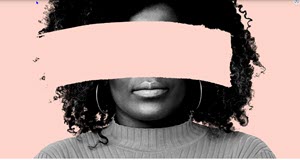Abstract
Excerpted From: Jacqueline Pittman, Constructing Race and Gender in Modern Rape Law: The Abandoned Category of Black Female Victims, 30 Michigan Journal of Gender & Law 151 (2023) (318 Footnotes) (Full Document)
 Modern ideas of rape being largely committed by Black men against white women have led to the overcriminalization of Black men and the banishment of Black women from legal protection against sexual violence. As Black men in the United States continue to be incarcerated at disproportionately high rates and Black women are left out of social justice movements and conversations, these stereotypes have proven especially harmful. This Note engages with racialized baselines that are presumptively neutral to show the ways in which modern rape law prioritizes white male perspectives and perceptions of race. Modern rape law's adoption of this baseline sustains and centers narratives on the white woman victim/Black male assailant rape dyad, ultimately ignoring the intersectional identity of Black women.
Modern ideas of rape being largely committed by Black men against white women have led to the overcriminalization of Black men and the banishment of Black women from legal protection against sexual violence. As Black men in the United States continue to be incarcerated at disproportionately high rates and Black women are left out of social justice movements and conversations, these stereotypes have proven especially harmful. This Note engages with racialized baselines that are presumptively neutral to show the ways in which modern rape law prioritizes white male perspectives and perceptions of race. Modern rape law's adoption of this baseline sustains and centers narratives on the white woman victim/Black male assailant rape dyad, ultimately ignoring the intersectional identity of Black women.
Part I of this Note examines rape law's history of allocating agency along gendered and racialized lines through statutory construction and other discursive techniques. Part II demonstrates how these legal structures have both cultivated and perpetuated the white victim/Black assailant rape dyad primarily by making the Black male the “ultimate” and most feared assailant, both with racialized heuristics and other criminal laws. Most importantly, Part II explains one detrimental consequence of allowing this white baseline to command the narrative: the abandonment of Black female victims. Section B of Part II details how the law is blind to the intersection of these victims' racial and gender identities because of the dominating rape dyad and its prioritization of white female victimhood. Lastly, this Note proposes a re-focusing of rape reform and feminist movements on Black female experiences, as well as a rhetorical restructuring of rape laws to improve their uniformity and remove white normativity standards.
This Note critically analyzes the ways in which a white baseline and its resulting delineations of femininity silence women of color in the context of rape laws. By looking at the harms that Black men are subjected to through this dominating baseline--including the perpetuation and recreation of taboos of white female and Black male relationships--one can see how the narratives of Black female victims are dispelled from reform efforts and conversations about violence against women. An assessment of the privileges legally conferred to white assailants and white victims reveals the subordination of Black victims simply by virtue of their nonconformity to the white baseline. The Note argues that the modern rape law's adherence to a white baseline sustains stereotypes of Black men as criminals and predators, which ultimately relegates Black females to a category of lesser and underserving victims.
[. . .]
Modern rape laws' adherence to the white baseline constructs and perpetuates notions of Black criminality and white victimhood. The ubiquity of these stereotypes, and their concretization in the law, leave Black female victims of rape unacknowledged and under protected at the intersection of their racial and gender identity--as they have been, and continue to be, throughout the legal and carceral systems. Exposing the presence and weaponization of this baseline is essential to protecting Black women.
Incorporating counter-storytelling in feminist and rape reform movements can empower Black women who have experienced rape or sexual assault. Additionally, rhetorically tailoring rape statutes has the potential to not only confer agency onto Black victims, but to remove legal obfuscation of white heteropatriarchal prioritization. Regardless of the chosen approach, the legal system must grapple with intersectional identities and reject racialized perspectives, or risk continued victim discrimination on the basis of race:
Who knows what the black woman thinks of rape? Who has asked her? Who cares? -Alice Walker
Jacqueline Pittman, J.D. Candidate, 2023, Vanderbilt University Law School; B.A., 2020, Vanderbilt University.


